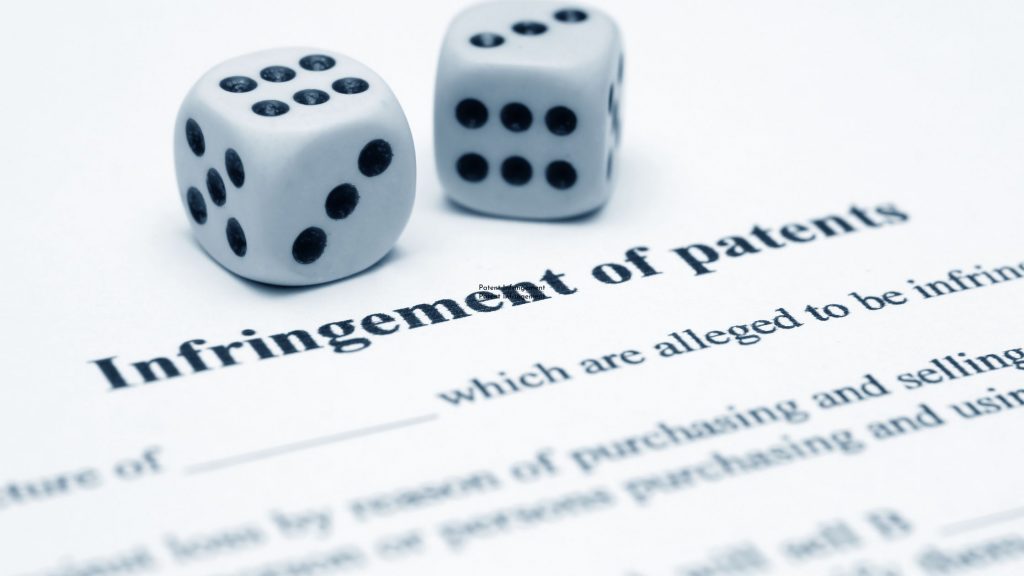Patent infringement occurs when a person, business or other entity uses or sells an invention protected by a patent without the permission of the patent holder. This happens when someone produces, uses, offers for sale, or imports into the United States a patented invention without authorization from the patent holder. Patent infringement is considered to be a violation of intellectual property rights and can result in substantial legal penalties.
The different types of damages that can be awarded in a patent infringement lawsuit
When a patent is infringed, damages may be awarded to the patent owner. This can include monetary damages and other forms of relief.
Monetary Damages: Monetary damages are typically awarded in two forms: compensatory damages and lost profits.
Compensatory damages: Compensatory damages represent the amount of money that would have been earned had the infringement not occurred and are designed to put the patent owner in the position he or she would have been in absent infringement.
Lost profits: Lost profits damages attempt to compensate the patent owner for the amount of money it would have earned had the infringement not taken place.
Other Relief: Other forms of relief, such as injunctions or orders requiring payment of attorneys’ fees, may be available in a patent infringement lawsuit. An injunction is an order issued by the court prohibiting further violation of the patent. A payment of attorneys’ fees requires that the infringer pay for the legal costs incurred by the patent owner as a result of prosecuting the lawsuit.
Punitive Damages: In some cases, punitive damages may be awarded to the patent owner. Punitive damages are designed to punish the infringer for their wrongful conduct and are awarded in an amount that is meant to deter future misconduct.
Finally, a court may also award enhanced damages, which are additional monetary damages imposed on the infringer as a result of its egregious behavior.
What are the consequences for violating a patent ?
The consequences for patent infringement depend on the particular situation, but generally include damages, injunctions to stop future infringement, and even criminal sanctions.
- In some cases, the court may also order the infringer to pay additional costs and/or attorney’s fees incurred by the patent holder in effort to enforce their rights.
- Additionally, if the infringement is deemed willful or intentional, triple damages may be awarded to the patent holder. Such a penalty is designed to both punish the infringer and deter future infringement.
- In short, patent infringement can lead to costly penalties and it is important to understand how to protect one’s inventions from potential infringement.
Consulting a qualified intellectual property attorney is always the best option for ensuring that an invention is properly protected by a patent.
What are some steps that can be taken to avoid patent infringement ?
1. Research existing patents: Before creating or producing a new product, thoroughly research already granted patents to make sure that the proposed invention is not an infringing copy of an existing patent.
2. Utilize patent watch services: Companies can monitor and receive updates on newly issued patents by subscribing to relevant patent watch services. This can help a company to stay up to date with the latest developments in the technology industry and avoid potential infringement issues.
3. Read patent specifications carefully: It is important to read the full description of any existing patents which might be relevant to a proposed invention. This will give an idea if a proposed invention falls within the scope of an already granted patent.
4. Consult a patent attorney: If in doubt, consult an experienced patent attorney to help determine if the proposed invention might infringe on existing patents and advise on ways to avoid any infringement issues.
5. Avoid copying competitors’ products: Companies should not copy the features of their competitors’ products and try to come up with new, non-infringing features for their products. This can help to reduce the chance of any infringement issues later on.
6. Incorporate patents into company’s technology policy: Companies should incorporate existing and pending patent considerations into their company’s technology policies, which will help to protect them from potential patent infringement lawsuits.
7. Have an internal audit: Companies should have an internal patent audit process in place to review the patents of their competitors and ensure that their products do not infringe on existing patents. This can help to avoid any legal issues related to patent infringement.
8. Utilize non-infringement agreements: Companies can sign non-infringement agreements with their suppliers and customers which can help to protect them from potential patent infringement lawsuits.
9. Develop a robust IP strategy: Companies should develop an effective intellectual property (IP) strategy, which will help them to identify and secure rights to their inventions as soon as possible, thus avoiding any potential infringement issues.
10. Educate employees: Companies should educate their employees about the potential risks of patent infringement and make sure that they are aware of the company’s policies regarding patents and IP protection. This will help to reduce any chances of accidental infringement.
By following these steps, companies can significantly reduce the risk of patent infringement
What to do if you are accused of infringing on a patent
If you have been accused of infringing on a patent, it is important to take immediate action. It is advisable to contact a lawyer who specializes in intellectual property law to help you understand your rights and risk factors related to the situation. The lawyer can provide you with legal advice about how best to defend yourself against an infringement claim or how to negotiate a settlement with the patent holder.
The attorney may advise you to file a defense in court so that your rights and interests are protected, or they may recommend filing for an injunction to stop further infringement of the patent. If necessary, the lawyer will also help you obtain a license from the patent holder which would allow you to use the patented invention without fear of further legal action.
If the infringement is unintentional, it may be possible to settle the issue without going to court by either reaching an agreement with the patent holder or by obtaining a license from them to use the technology. In any case, it is important to seek professional legal advice as soon as you become aware of the situation in order to protect your rights and interests.







